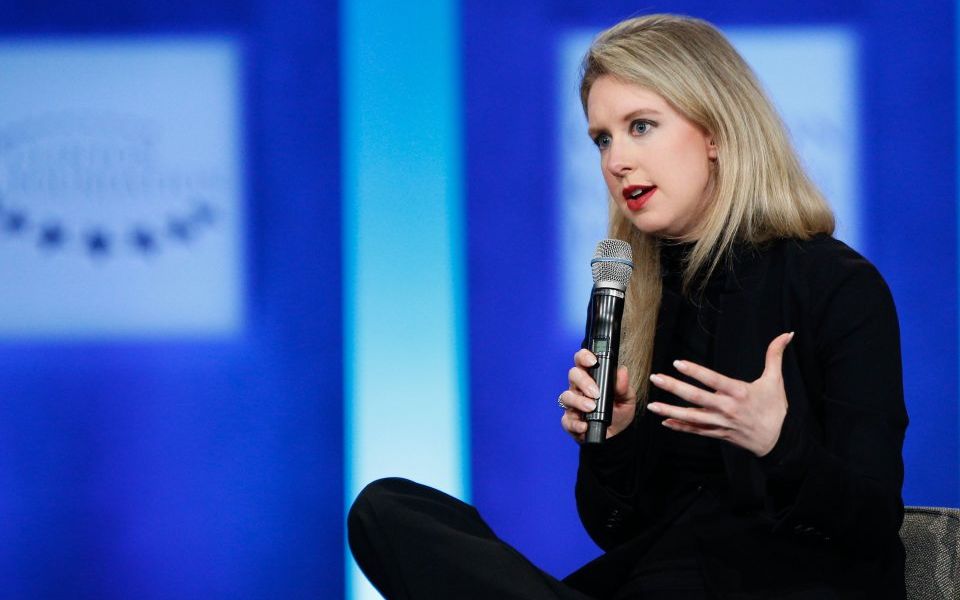From Elon Musk to Elizabeth Holmes, beware maverick disrupters promising to save the world

It has not been a good week for celebrity entrepreneurs.
The world’s favourite failed healthtech unicorn folded for good. A maverick space technologist mired himself further in a pointless libel battle.
And we also heard that Gwyneth Paltrow’s “wellness” brand Goop had agreed to pay $145,000 for making “unsubstantiated claims” about the healing properties of vaginal eggs (although the less said about encouraging desperate women to insert crystals into themselves the better).
Read more: Elon Musk's fall should bring our expectations down to earth
Let’s start with Theranos founder Elizabeth Holmes, whose vision of a magic machine that could detect cancer from a finger-prick of blood held the tech and medical worlds spellbound – until it transpired that it didn’t work.
The rise and fall of Theranos is a lesson for all of us in this tech-fuelled age, where saving the world has become the mission of Silicon Valley disciples.
It is not clear whether Holmes believed her own fantasy about her miracle blood-testing machine, but she was compelling enough to raise $700m worth of funding and lure big names (most notably former US secretary of state Henry Kissinger) onto the board.
It was only thanks to the tireless work of Pulitzer-winning journalist John Carreyrou that the company was exposed as a fraud in 2015.
After a series of crises and redemption efforts, Holmes was finally forced out in March 2018, and now faces criminal charges for wire fraud. She is accused of encouraging the use of her blood-testing device while knowing that it didn’t work, and of defrauding investors. It was revealed on Wednesday that the firm, once valued at $9bn, would dissolve.
The question of Theranos is not what went wrong – we now know that there was little to go right, based as it was on technology that didn’t do what its founder claimed. Rather, it’s how the deception could last so long. And the answer rests with Holmes herself.
The foundation myth for her company – a 19-year-old Stanford drop-out with ice-blue eyes, inspired by her own fear of needles to change the face of medicine – rocketed her to the covers of Fortune and Forbes magazines, the TedX stage, and a $4.5bn personal valuation.
Cross the Pied Piper with the Emperor’s New Clothes, and you have a modern-day cautionary tale, about a world so sick of inept politicians and out-of-touch experts that we are drawn to charismatic visionaries promising that their technology will solve all our problems.
Which is where Elon Musk comes in. The Tesla founder this week reignited his perverse feud with Vernon Unsworth, a diver involved in the mission to rescue the boys trapped in a Thai cave this summer.
In a letter to a journalist at BuzzFeed, Musk (whose futuristic visions include solar-powered roads, vacuum-tube commercial travel, and sending humans to live on Mars) poured petrol on the flames of a scandal that had otherwise been mostly extinguished.
He suggested that Unsworth was a “child rapist” who had travelled to Thailand “for a child bride”. Needless to say, no one has found any evidence of this, and Musk did not deign to provide any. Unsworth’s lawyer has dismissed the claims and confirmed that legal action is underway.
Unsurprisingly, Tesla’s share price dropped again on Wednesday, sinking to its lowest point since June.
The big difference between Musk and Holmes, of course, is that his product works and hers doesn’t.
Theranos promised something that people want but that didn’t exist. Tesla, meanwhile, makes cars that people want to buy – so much so that there is a waiting list of up to 17 months. Its problem is whether it can actually produce them.
The company is getting there, finally meeting its December 2017 production target two months ago, but it has been an uphill struggle. And it is unclear whether Musk is helping.
Certainly, he has become something of a cult leader, whose faith in renewable energy and space travel has disrupted two of the highest stakes industries.
Many before Musk have tried and failed to make electric cars viable, while he has succeeded in turning them into a status symbol, and with SpaceX he leads the race to make commercial space travel a reality.
But the power of his tenacious work ethic (he reportedly works 120-hour weeks) and stubborn refusal to give up is undermined by his volatility and bizarre behaviour, from spontaneously announcing he might take Tesla private, to insisting to journalists “I was not on weed”.
At this point, who can say whether either Tesla or SpaceX could survive without Musk. Like Theranos, these are companies built around the sheer force of will of their founder, held together by a single individual’s staggering self-belief and ability to convert outsiders to their faith.
It might be enough. The public is desperate to believe, and we currently have a taste for disruptors who flout the rules.
The trouble is that sometimes the rules are there for a reason. In the case of Holmes (and, indeed, Paltrow with her vaginal crystal eggs), breaking them has consequences. You can’t build a world-changing company with vision and bloody-mindedness alone – you also need results.
Theranos shows the danger of trusting celebrity leaders who try to twist reality around their own fantasies. Musk, with his unsubstantiated outbursts, has revealed that he is equally prone to egotistical delusions. Let’s hope his companies can survive them.
Read more: Elon Musk has just reignited his feud with a British diver